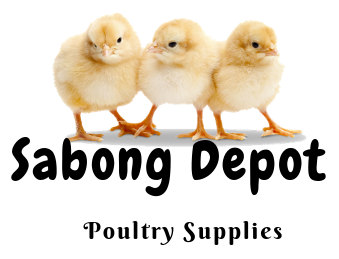
In gamefowl breeding, practical knowledge, not in-depth genetics, is most important. After all, there is no science on the study of roosters’ fighting ability. Mastering the art of judging fighting ability and knowing how to produce gamefowl with the right fighting attributes may only be acquired by personally breeding and fighting a few hundreds of roosters over a period of some years. This is what I actually did over a period of 55 years. Nonetheless, knowledge of genetics is important. A good practical breeder with some knowledge in the science of breeding will enjoy big advantage as science will complement the art.
The application of science allows the chicken industry—meat and egg in particular-- to progress much. Modern-day breeding programs, based on sound genetic principles, facilitate the emergence of better chicken meat and eggs.
But it is hardly the case in gamefowl breeding wherein progress is registered in logistics, infrastructures, and nutrition, but not in genetics. Of course, because it is easier to understand the genetics behind egg-laying or fast growth than the genetics of a gamefowl’s fighting ability. And, also, the chicken meat and egg sectors are big business worldwide, gamefowl breeding is not. Giant companies and the best minds are not interested in such expensive research into the genetics of gamefowl.
Thus, gamefowl breeding remains mostly an art. Even today many of the gamefowl breeders are able to produce good gamefowl, not by learning genetics, but by the sheer art of selection. And maybe, logical thinking.
Most experienced gamefowl breeding starts with their practical observation and work their way to infer something out of these observations. But without knowledge of scientific principles, they usually end up with nothing. Not a few old-timers would contend that the hen, not the cock, contributes more traits to the offspring, although genetically both parents contribute 50% of the offspring’s genetic information. This is their practical observation, and they maintain this without knowing why because of the lack of support of a scientific study.
Another common observation in gamefowl breeding is that the stag gets its traits, especially fighting ability, from the mother. Another common observation is that black roosters are speed roosters and green legged greys are strong and game. Likewise, they cannot explain why.
Although, proponents of this kind of conclusion fail to offer explanations, Deductive Genetics can. Deductive Genetics is combining practical knowledge in gamefowl breeding with the science of genetics, drawing connections between conclusions developed from practical experience and the scientific hypothesis, theories and principles of genetics. The concept of Deductive Genetics is an application of the science of genetics in aid of the art of selection, hoping to make selection easier and more scientific. And, results more predictable.
When I thought of applying deductive genetics to gamefowl breeding, I never entertained any notion that it will produce sure winners. I believed it will only make selection of brood fowl simpler, easier and more accurate. And, for years now I have been studying and applying the concept, particularly in breeding the Blakliz, a bloodline I originated. However, I managed to refrain from raising the topic in my writings, lectures and seminars and in my blogs. Somehow, for some time I had succeeded in keeping it as my little trade secret.









2 comments
GRACIAS POR LA INFORMACIÓN.
Very good article!